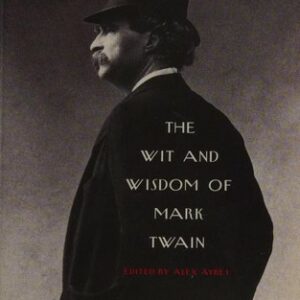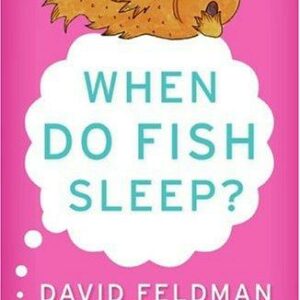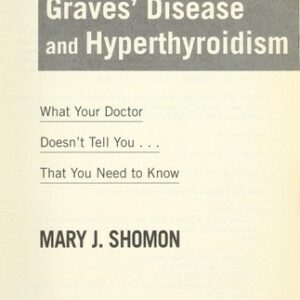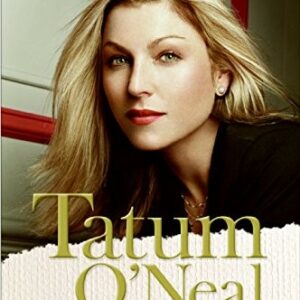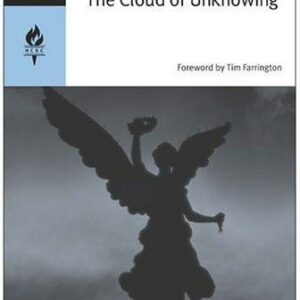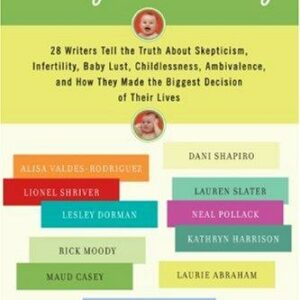A Likely Story
$15.00
| Title | Range | Discount |
|---|---|---|
| Trade Discount | 5 + | 25% |
- Description
- Additional information
Description
Now in paperback–from the author of the acclaimed Whoredom in Kimmage, a moving, controversial, and supremely intelligent memoir of a bright and vulnerable teenager’s hellish summer job.
In 1978, Rosemary Mahoney, an aspiring young writer of seventeen, wrote her personal idol Lillian Hellman inquiring whether the famed woman of American letters might need domestic help for the summer. When Hellman responded affirmatively, Mahoney imagined an idyll on Martha’s Vineyard of mentoring and friendship. But in reality Mahoney’s summer unfolded into an exquisite and grueling exercise in humiliation at the hands of the acerbic Hellman and her retinue of celebrated acquaintances. By turns heartbreaking and uproariously funny, A Likely Story portrays the coming-of-age of a brilliant and troubled young woman–a universal tale of illusions shattered and an object lesson in the often misdirected search for heroes."An endlessly fascinating book…."
–Christopher Lehmann-Haupt, The New York Times
"Mahoney’s characterizations are masterful. She impeccably re-creates Hellman’s friends and the emotions they summoned up in her younger self."
—Los Angeles Times Book Review
"Rosemary Mahoney…brings to her memoir the shaping and insight and sheer good writing we expect from a work of fiction."
—The New York Observer
"This brave and heartwrenching book is the final evidence that, as far as writers go, Mahoney is the real thing."
—NewsdayRosemary Mahoney is the author of The Early Arrival of Dreams, an account of teaching in China that was a New York Times Notable Book in 1990, and Whoredom in Kimmage, a National Book Critics’ Circle finalist in 1993. She won the Charles E. Horman Prize for Fiction Writing as an undergraduate at Harvard and is also the recipient of a Whiting Writing Award. She lives in New York City.I was in Los Angeles when I learned that Lillian Hellman had died. It was the summer of 1984; I was twenty-three. I was staying with my sister Elizabeth in her loft apartment in an old building near LA’s financial district. In exchange for the mattress my sister had given me to sleep on for six weeks, I had offered to help her strip decades’ worth of heavy gray paint from the loft’s enormous window frames, to uncover the soft, copper-colored oak we knew was buried beneath the paint. We used a caustic stripping agent, a paintbrush, and two scarred putty knives for the job. I worked in old-fashioned Chinese cotton underwear I’d bought in nearby Chinatown–the underwear was light and cool against the bitter brown sunlight that pressed all afternoon through the picture-paned windows. We protected the floor with back issues of the New York Times, which we’d gotten from an upstairs neighbor. Despite the powerful burning chemicals, the heat, and the filth that covered the aged wood, the work was pleasantly meditative; like pot washing or silver polishing, it inspired a trancelike physical rhythm and a spiral of connected thought. I worked for hours with slack-faced steadiness, my mind softly swinging from thought to thought like a simple pendulum, buffing pebbles of ideas in my head as I scraped at the curdling paint in long, smooth strokes. Into this relaxed state crashed the headline under my toe when I bent to wipe a bubble of Strypeeze from my sneaker:
LILLIAN HELLMAN, PLAYWRIGHT, AUTHOR, AND REBEL, DIES AT 79.
Seeing these words was like discovering that the cool, slippery object you’ve crushed beneath your bare foot in the garden is a large pus-colored slug. I recoiled instinctively and my face tightened and my free hand flew up to cover my mouth. For several years I had supposed that Lillian Hellman was already dead, perhaps because for years I had been killing her off in my imagination. But the newspaper was only a few days old. I looked at the headline again to be certain I had read it correctly, then heard myself mutter, "Thank God." I called out to my sister that Hellman was dead. Lillian Hellman was good and dead. I clapped my dirty hands and made cracks about the pieties that were sure to be scattered about at her funeral.
After reading the obituary several times, kneeling over the newspaper with my elbows tucked into my lap, sneering and shaking my head, I stood up and returned to my work, humming and hoping to pick up my thoughts where I had dropped them off.
I thought about my sister’s face; like mine, it was long-chinned and serious. I tried to conjure Johns Hopkins University, where I would be entering a graduate writing program at the end of the summer: I saw a sun-filled, linoleum-floored classroom, a brick dormitory with a domed clock tower, a wide shallow stairway of pale marble worn softly concave–like the rubber kneelers in the Capuchin chapel up the road from our house–by decades of leather soles. But I failed to regain the feeling of purposeless freedom I had enjoyed before coming upon that obituary; my thoughts were self-conscious and deliberate now, laboriously oversteered, as if by a battleship’s great rudder. As the hot afternoon progressed, I began to experience a peculiar, nagging uneasiness. I was conscious of a hollow timbre in my rejoicing over Lillian Hellman’s death, a sense that despite my outward joy I was disturbed by the news. I didn’t like being reminded of her, didn’t like thinking about the few months I spent in her house.
I scraped at the gray paint and hummed a stupid tune to distract myself, to keep my mind from slipping back into recollections of things that had happened six years before but were humiliating enough that they could still make me blush. It was easy to feel myself a teenager again in the little maid’s room where I slept in Hellman’s house in the company of the ironing board, the folding clothes rack, and the groaning of a chest freezer that was parked, most certainly, just outside my room but that in my memory lies persistently inside it, against the north wall of the room, its white rectangular bulk echoing the shape of the bed I lay in. I remembered lying miserably awake in that small bed thinking that if I were a bolder person, I would find a way to repay all Hellman’s strictures and stridor: maybe lacing her beloved, fussed-over wine bottles with vinegar, or switching her medicines, or rearranging her furniture in the middle of the night so that she, nearly blinded by glaucoma, would become mazed in her own living room.
At the time I wasn’t in the least aware that such malevolent thoughts might be harmful to my soul or that they reflected a frustration and vindictiveness that bespoke only my own unhappiness, but I was painfully conscious of it now, and amid the confusion of emotions I felt that afternoon–the embarrassment of sharp recollections, the relief and anger, the annoyance with myself at feeling any of these things–I was most bemused by my feeling of sorrow.
At seventeen I was woefully ill suited to the housekeeping job Lillian Hellman had given me, but at the time I thought that was beside the point; it wasn’t about housekeeping. The youngest of seven children, I was, I think, a young seventeen. Though I wouldn’t have admitted it, I could still feel mournful disappointment that Santa Claus was a myth and was still keenly attracted to the garish trappings of Halloween. I loved sledding. I was deeply attached to my mother. I loathed dresses and makeup and the time-consuming efforts women and girls made toward improving their appearance, made no attempt to improve mine, yet was uncomfortable with how I looked. I was shy and gregarious in equal measure, self-conscious but also cavalier, thick-skinned and hypersensitive. Outwardly I was convivial and light, but all of my efforts at sociability were calculated to hide my inwardly somber, sober self. I was a relatively popular girl with the heart of an unpopular one and the mind of an outcast. Every quality I possessed had its polar opposite, and each was a way of counterbalancing the other. I was defensive, competitive, reactive, suspicious, skeptical, mistrustful, and if you had told me I was any of those things, I would have denied it roundly and resented the presumptuous attempt to define me.
I was athletic but interested in books. I had plenty of friends, and my brothers and sisters were about as close in age as seven siblings can feasibly be, but I was deeply lonely. I turned to reading whenever I had the chance and had begun writing short stories when I was nine or ten. I liked it that when you were reading a book or writing a story the dreary, earthbound room you were sitting in disappeared temporarily, that you were liberated from the ongoing need to prove and protect yourself, from having to act, that in the complex and brightly colored world suspended between two covers you didn’t have to think about the troubling complications of your own messy life; you could control the pace of time, attach your own pictures to the words before you, and the words, piled together as the were, became more real, more touching, more palatable than reality.
On my sixteenth birthday I received from my mother the gift of a typewriter. It was a small, squarish machine with a gray carrying case, a white plastic body, and intestines of glistening steel; it had impressive chattering teeth that bit the page with a satisfying tch. I was at boarding school then, at St. Paul’s in the woods of Concord, New Hampshire, and my room at this wealthy school came puzzlingly unequipped with a desk. With no steady surface upon which to put the typewriter, I pulled out the bottom drawer of my dresser, laid a small board across it, placed the typewriter on the board, sat Indian-style on the floor with my knees tucked into the foot and a half of space beneath the drawer, and typed. From time to time, when I advanced the carriage too vigorously, the machine slid off the board and onto the floor with the ponderous thump of a dropped pumpkin. I wrote stories when I should have been reading history or math. The only class I looked forward to was my writing class, because I was reasonably good at it. One day, with a copy of a story I had written in his long-fingered hands, the teacher, Mr. Carlisle, went out of his way to praise my work to the class and then, settling his eyeglasses more comfortably on his nose, read the story aloud. I was both mortified and delighted. The assignment had been to write a short story in the style of an established writer–I chose James Joyce. That seemed possible to me simply because I was related to people not unlike the ones in his stories. I wrote stories in the style of all manner of writers, flailing desperately about for a voice. I had volumes lodged in my heart that I wanted to express and no real way to express them. I never trusted my own puny voice.
One winter weekend in 1977, Alan Paton came to St. Paul’s to deliver a lecture. I had read Cry, the Beloved Country and liked it. While Paton was on the school campus, I saw him picking his way gingerly along a muddy path in a beige raincoat and was fascinated and enchanted by the sight of him. He was a small man with a large head, a lot of very white hair, and feet so fine he seemed to be walking on tiptoe, like a billy goat. Later that day he delivered a lecture to the entire school. He was too short for the podium and again looked as though he were balancing on his toes, stretching to get his toothy mouth up to the microphone. That evening he gave an informal reading in a room so overcrowded that many of us had to sit on the floor. I wanted to see Paton up close; I liked his voice and his strange accent. He had an odd, thrusting lower lip that bulged firmly, as though a row of pebbles had been tucked inside it. The lip made him look slightly annoyed. He read for us a short story called "The Gift," about a very shy, young South African boy who betrays his mother in the presence of his schoolmates by denying ownership of a basket of warm food that the mother, whom he loves, has prepared and had delivered to him in the schoolyard, courtesy of the family servant. Already that day the boy has received some unpleasant attention when his shoes, clearly chosen for him by his mother, are mercilessly judged by the other boys to be girl’s shoes. By refusing his mother’s gift, the boy for the first time takes a solitary step into the world. At the story’s end the mother learns of the boy’s renunciation of her gift and chooses to keep silent about it. "I have no doubt that she kept it in her heart," Paton read. "And so would any mother keep it in her heart. For this was one for whom she fears, going forward and retreating, now confident, now afraid, making his way from her womb into the world."
Hearing those lines I was gripped with sadness and began to cry. I was thankful that I was sitting on the floor because I could lift my knees and rest my forehead against them without anyone suspecting tears. I remember the drops falling onto the black slate floor in glistening spots like motor oil in the space between my sneakered feet. I was ashamed of the tears in front of my friends, but I was crying because renouncing your beloved mother was a thing I knew I, too, was capable of, a thing that seemed inevitable. It was clear that the boy in the story was Paton himself, and it seemed to me tremendous that he was able to say on paper that he had done a tragic thing.
Later that year, in a course called Women in History, I read Lillian Hellman’s memoirs, which had a similarly strong effect on me. I was dazzled by her depiction of boat trips across the ocean, train trips across Europe, terrifying flights across Siberia, Nazis and Fascists, Communists and Stalinists, Hemingway and Faulkner, epigrammatic conversations in which the wise and moral Lillian was always slamming some ruthless yet simple-minded dupe smartly into place with a withering retort. The people in Hellman’s books had a way of saying ominously prophetic things like "If you don’t understand now, you never will," or "Someday, if you’re willing, you’ll know the answer," or "I’ve treated you harshly today for your own good." When Hellman wrote about her smallest experiences, they had the feel of epic adventures with epiphanic endings. Her conversations were contentious and tantalizing. When she was in a bad mood, she didn’t mind saying so; to the contrary, Lillian Hellman glorified bad moods, gave them a glamorous edge, brought them to the level of art. This was a revelation and a boon to a girl who had an abundance of bad moods of her own. Hellman’s relationships with people moved fast, unlike mine, which seemed juvenile and repetitive, locked as they were within the endless regimen of boarding school: breakfast, chapel, classes, lunch, sports, dinner, library, homework, bed. Her life, even in its smallest details, meant something; it was guided by honesty and courage, while mine seemed fearful and tainted and dishonest somehow. She lived her life; I merely walked along beside mine, keeping an eye on it, reining it in. As a teenager Lillian Hellman smoked and snooped and had cops on the street grabbing her by the arm and saying, "Hey, young lady." She was always telling adults what to do, or telling them that their morals were bad, their language was bad, they cared too much about the wrong thing. I couldn’t have done that. I wasn’t daring, and it wasn’t entirely clear to me what morals actually were. I had only a vague understanding of politics and what it was for. Instead of saying what I thought, I stewed and fretted in silence. Lillian Hellman slept with people. I didn’t. She vomited in a dramatic way when she was upset. Such an imaginative response wouldn’t have occurred to me. If I was upset, I hid it. Lillian Hellman was in control. I wanted to be in control that way, instead of how I was: naive and prideful, with no control over anything but my handed-down clothes, my books, my crookedly woven braid, my dark and deskless dorm room with its one window and its blunt view of some towering white pines that wept sap in a melancholy way.
When I saw the movie Julia, based on a story in Hellman’s Pentimento, I was filled with envy and longing. Lillian Hellman got to sit at a typewriter and smoke and write a play and have a smart famous guy who loved her tell her the play was no good, which instead of making her cry and give up made her work harder. She was brave and strong and full of noble ideals. She had risked her life to help a friend, to support what she believed in. That she could tell stories about her life this way, that she had a life like this, seemed marvelous. It filled me with wonder that the person in her stories was a real person in the world. And when she wrote in An Unfinished Woman that she was "overproud, oversensitive, overdaring" because she was shy and frightened, I wanted to see her, have a look at her, and let her have a look at me, for surely she would recognize similar traits in me.
I needed a job that summer, but my only real option was to return home to Milton, Massachusetts, and work as a waitress at the Howard Johnson’s on Route 138 up in the spooky Blue Hills, where the manager, who knew my mother, was willing to give me a job. Sitting on the bed in my dorm room that winter, I couldn’t imagine myself going home to this particular job, for that Howard Johnson’s was where my mother went to drink martinis. In the late afternoon, with a clutch of stamped letters and bills sticking out of her handbag, she would say to anyone who happened to be at home, "I’m going to the post office," and two hours later she would come home drunk. She sat alone in the air-conditioned restaurant in a big orange vinyl booth and had two or three dry martinis with a twist of lemon, then barely managed to drive the two mercifully straight miles home. After an arduous passage from the car to the house–two steps forward, one step back–she came unsteadily through the front door, sometimes with the letters still in her handbag. The letters brushed against the doorjamb with a papery scrape, like dried cornhusks. I pictured myself on hot afternoons to come, wearing a hairnet and a prim Howard Johnson’s uniform, waiting on the table next to my mother’s, while she talked drunkenly at me across the booth divider, or crowed like a rooster, or barked like a poodle, or offered a running critique on the other customers, or sassed the other waitresses, a cigarette smoldering in her hand. I imagined myself putting down a tray of hot dogs and fried clams, untying my apron, picking up my mother’s gray metal crutches, cold now in the air-conditioned dining room, and ending the spectacle by driving her safely home from my place of work.
I loved my mother. Nothing could change that. But it was plain to me that when she drank she wanted to leave behind the life she was in. This filled me with anxiety, for the life my mother was in included me. At home I spent my days waiting for my mother’s drunken surprises, and when they came I was never truly surprised, just grimly watchful. I couldn’t imagine yet another sullen summer at home, mowing the lawn, doing the shopping for my mother, fetching her eyeglasses, steering her toward her bed when she was drunk, cleaning the house, then getting into bed at night in my humid box of a room, with brittle wasp carcasses cobwebbed in the window well and Homosote walls papered with scenes from America’s colonial history: George Washington’s Delaware Crossing, Benjamin Franklin’s Experiment, Penn’s Treaty with the Indians, Paul Revere’s Midnight Ride.
Despairing over my tiny life, eager for an adventure, for change, I told my mother I didn’t want the job at Howard Johnson’s. When she asked me what I really wanted to do, I said, "I really want to work for Lillian Hellman," then laughed to show it was only a joke. Thoughtfully my mother studied my face. "Why don’t you write to her?" she said. I waved the idea away saying, "She’ll never take me."
"Maybe she will, Rose," my mother said. "You won’t know until you try."
I sat at my little typewriter and wrote Lillian Hellman a letter. I knew that Hellman spent her summers on Martha’s Vineyard, where two of my sisters, Ellen and Elizabeth, spent theirs. I addressed the envelope to Lillian Hellman, Vineyard Haven, Mass. 02568, certain that it would find her. In the letter I said I had read her books and asked whether she needed me to work for her in any capacity. She wrote back and said she needed a part-time live-in housekeeper for the summer months and asked if I could cook. Ecstatic, I wrote again and lied about the cooking. I knew nothing about cooking. The very sight of a kitchen bored and irritated me, but I was so eager to be in the same room with Lillian Hellman that I said, yes, of course I could cook, without any thought for the possible ramifications of this falsehood. I wasn’t domestic. I hated setting the table. I knew very well how to clean a house and didn’t actually mind it, was even good at it when I put my mind to it, but meticulous things like cooking and sewing, wrapping gifts and arranging flowers frustrated me to distraction. I had no attention span for these exacting tasks. I was involved in my own thoughts and was impractical. I wanted to read and write and dream all summer. Employment was the farthest thing from my mind, and when I applied for the job I was thinking only of how Lillian Hellman and I would become great friends. She would be so pleased by me, my interests, my personality, that she would forget about all those petty things I didn’t know how–or didn’t want–to do. I pictured us sitting at her table together, smoking cigarettes and making toasts to this and that with upraised glasses of a glowing amber drink (never mind that I had had only a few disastrous experiences with smoking and drinking), laughing sagely and discussing books and people and the world and life. She would ask to see something I had written, and I would demur, saying that anything I had written was terrible, and she would persist until I gave in and said, "If you insist," and later she would proclaim that my work was not terrible, my work was terrific.
No, she wouldn’t use the word "terrific," she would use the word fine, it was an inspiration, a fine one. Then, naturally, she would reveal all her secrets and problems to me. I thought she must have known something about me, either actually or psychically, to have picked me out of all the people who were certainly as eager as I to work for her. I felt that this meeting with Lillian Hellman was a natural step in my destiny, proof that I was, as I sometimes dared to suspect in the darkness and safety of my bed, special. The moment I received Hellman’s letter, school suddenly seemed inconsequential, provincial. I felt elevated, elated, freer, on a level with my teachers, who, when they heard of my good fortune seemed genuinely impressed, congratulating me and inevitably adding, "They say she’s a pretty tough dame."
The tougher the dame the better, I answered jauntily.
Several times a day I went to my dorm room and unfolded Hellman’s letter, holding it under my lamp, studying it, looking for meaning in the slanting signature, the date, the hue of the typed ink, the stately stationery that read 630 Park Avenue, New York, N.Y., elegantly centered in its upper margin. She had said that if I took the job with her on the Vineyard, I would be living in "a very pretty room." Endlessly I imagined the very pretty room (light and large, with flower-patterned wallpaper, a fireplace, Persian rugs), and me in it (composed, at a desk, no braids, clothing I didn’t recognize), and Lillian in the doorway (smiling), solicitously catering to me. With Lillian Hellman I would finally be touched by the world at large, and the world would have a chance to be touched by me.US
Additional information
| Weight | 8.4 oz |
|---|---|
| Dimensions | 0.7500 × 5.2500 × 7.9000 in |
| Imprint | |
| Format | |
| ISBN-13 | |
| ISBN-10 | |
| Author | |
| Audience | |
| BISAC | |
| Subjects | autobiography books, literary fiction, essays, memoirs, books for women, autobiographies, literary gifts, women authors, memoir books, biographies of famous people, biographies, biographies and memoirs, inspirational books for women, historical biographies, literary biographies, biographies of women, about women, lillian hellman, stocking stuffers for teenagers, Memoir, women, feminism, adventure, war, BIO022000, family, writing, biography, Literature, love, imagination, families, coming of age, literary, BIO007000, autobiography, women in history |


